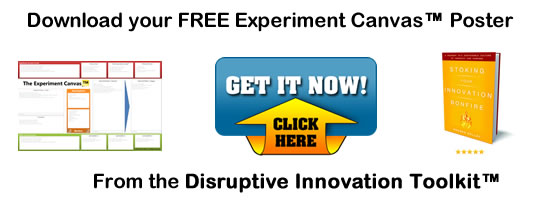Learning to Fail Fast through Play, Playfulness and Improvisation

This is the third blog in our series of three blogs, on cultivating a fail fast culture.
In last month’s blog, Cultivating a Fail Fast Culture – as a manifestation of learning & exploration we explored what it means to take a reflective stance, to use the experience of failure to support ourselves and others we interact with, as a pivot point and a manifestation for learning and exploration. By stopping and taking a reflective stance and intentionally hitting our “pause buttons†we get to “work with†what is really going on (the story) when our own, and the mistakes and failures of other people, are involved.
Doing this creates coaching and teachable moments that help cultivate people’s self-awareness, self-regulation and ultimately the self-mastery to deal with making changes, taking risks and in making mistakes. All of which are fundamental toward building the foundations for developing ‘fail fast’ organizational cultures, where creativity, collaboration, innovation and change can thrive and flourish.
From Workspace to Playspace
Organizations wishing to compete and survive, in our challenging, fast moving VUCA times have the opportunity to compliment, enhance and push beyond their conventional perspectives on learning and change and invest in expanding people’s capacity to ‘learn by doing.’
By introducing play, playfulness and improvisation into the way things get done in the organization, they can potentially reframe work as a ‘PlaySpace’!
Described by Pamela Meyer, in her book, “From Workplace to Playspace†“Play Space†as;
“an invitation to shift from the static organization to dynamic processes of organizing, innovating, learning and changingâ€.
Play spaces offer new relational and transformative approaches that make room for and create permission, safety, trust and support for the risky experiences that learning and changes involve in creating ‘fail fast’ cultures.
Play spaces emerge and embrace a whole new field of ‘on the job’ learning
Involving judgement-free, improvisational and experimental, energizing and generative exercises, activities and games that generate new forms of behavior and modes of thought and are both;
- Free and structured,
- Focused and dynamic,
- Serious and fun.
Involving people with Play gives them permission to explore and experiment with new and novel ways of dealing with the environment, seizing opportunities and creating better solutions.
It creates a dynamic and engaging ‘on the job’ learning space for the development of new perspectives and new ways of being, thinking and doing things differently, in ways that people, groups, organizations, users and customers will value and cherish.
Developing new perspectives, mindset shifts and behavioral changes
It creates the space for new perspectives, mindset shifts and behavioral changes that;
- Emerge new possibilities and perspectives, that result in creative ideas.
- Explore new roles and developing new capacities.
- Allow more flexibility, improvisation and play in the system.
- Build shared commitment, responsibility and contribution to the desired innovation, learning and change goals.
Playfulness at work
“Playfulnessâ€, described by Patrick Bateson, Paul Martin, in their book “Play, Playfulness Creativity and Innovation†is a broad term denoting any activity that is not ‘serious’ or ‘work’ where:
- The behavior is spontaneous and rewarding to the individual.
- It is intrinsically motivated and its performance is a goal within itself.
- The behaviour occurs in a protected context when the player is neither ill or stressed.
- The behaviour is incomplete nor exaggerated relative to non-playful behaviour in adults.
- It is performed repeatedly.
“Playfulness facilitates and accompanies ‘playful play’, a subset of broadly defined play, which is distinct from what happens in formal games, theatrical performances and so forthâ€.
The role of improvisation
Improvisation is a core dimension of play, and, according to Pamela Meyer, requires “capacity consisting of competence (the ability to respond to the unexpected and unplanned using the available resources), consciousness (a lively awareness of possibilities), and confidence (a belief in one’s own and others abilities)â€.
Wikipedia defines improvisation as “creating or performing something spontaneously or making something from whatever is available. Improvisation, in the performing arts is a very spontaneous performance without specific or scripted preparation. The skills of improvisation can apply to many different faculties, across all artistic, scientific, physical, cognitive, academic, and non-academic disciplinesâ€.
Applied improvisation and learning
The Applied Improvisation Network states that applied improvisation promotes collaboration, confidence and creation through creating an atmosphere of positive purpose where everyone is encouraged to contribute. Allowing individuals, groups and organizations to release their creative potential and over time, increase their confidence by replacing fear, suspicion and anxiety with focus, with creativity and a sense of collaboration.
Applied improvisation uses the principles, tools, practices, skills and mind-sets developed in comedy, jazz and theatre and utilizes them for non-theatrical or performance purposes, which can be applied to a range of subjects including innovation. Exercises, activities and games are designed to encourage risk taking, playfulness and to be in the moment. Participants have fun whilst developing or challenging their existing mind-sets and enhancing their sensory acuity and increasing their behavioural flexibility.
Maximizing play and improvisation in cultivating fail fast culture
Outlined in our diagram below, using play and improvisation activities to disrupt, awaken, challenge and co-create new agile and improvisational capacities, ways of being, thinking, behaving and change. To introduce, integrate and assimilate new roles, structures, artefacts and processes across individuals, groups, the organization and the whole system.
“Playspace is at the core of innovating, learning, and challenging the sweet spot of their convergenceâ€.

Embodying and enacting a fail fast culture
People become accepting and appreciative of their own, and others talents and perspectives, and foster the free flow of ideas, shifts mindsets, breaks boundaries and increases the possibilities for enacting the positive changes required in a fail fast culture. • Helps develop people’s tolerance to uncertainty to shift the way they think and feel about pushing the envelope, making changes and taking smart risks.
- Unleashes people’s potential for through the development of a generative discovery skill set that sees, responds to and solves problems as well as realize opportunities.
- Supports people to recover, renew and replenish their hearts and minds when they make mistakes and fail when playing, improvising and learning how to continually disrupt and shift their business game.
People learn how to be, think and act differently and experiment with, and apply new mindsets, behaviours and skills as they move through the stages of learning, innovating and changing, with speed and grace, to become consciously competent in the new “Fail Fast†world.
At ImagineNation™ we lead the way and help businesses achieve their innovation goals by challenging businesses to be, think and act differently to create a world where people matter and innovation is the norm.
Image credit: purrfectcatbreeds.com
Wait! Before you go…
Choose how you want the latest innovation content delivered to you:
- Daily — RSS Feed — Email — Twitter — Facebook — Linkedin Today
- Weekly — Email Newsletter — Free Magazine — Linkedin Group
 Janet Sernack is an ICF ACC accredited executive coach, corporate trainer, group facilitator and culture and change consultant with some of Australia’s and Israel’s top 100 companies. She is the Founder of ImagineNation™ an innovation education company that provides innovation e-learning programs including The Coach for Innovators Certified Program™ experiential learning events including The Start-Up Game™. Follow @JanetSernack
Janet Sernack is an ICF ACC accredited executive coach, corporate trainer, group facilitator and culture and change consultant with some of Australia’s and Israel’s top 100 companies. She is the Founder of ImagineNation™ an innovation education company that provides innovation e-learning programs including The Coach for Innovators Certified Program™ experiential learning events including The Start-Up Game™. Follow @JanetSernack
NEVER MISS ANOTHER NEWSLETTER!
LATEST BLOGS
Three things you didn’t know about credit cards
Photo by Ales Nesetril on Unsplash Many of us use credit cards regularly. From using them for everyday purchases to…
Read MoreFive CV skills of a business-minded individual
Photo by Scott Graham on Unsplash The skills listed on a CV help employers quickly understand your suitability for a…
Read More


